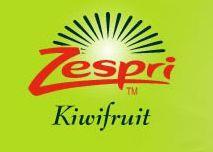
Zespri has highlighted its commitment to protecting the New Zealand kiwifruit industry by revealing details of the global research and development programme that aims to protect it from the vine disease Pseudomonas syringae pv. actinidae (Psa).
According to a joint news release from Zespri and Kiwifruit Vine Health (KVH), the programme includes some 50 research projects across the globe, some of which have already been completed, partnering researchers, scientists and other global experts to formulate advice for the kiwifruit industry.
Focusing on four areas, the research is looking at detection, biology, orchard management techniques and treatment or reduction, all overseen by a four-man expert committee.
By the end of the year, some NZ$4.6m in collective funding, including government contributions, will have been invested in the programme, according to Zespri CEO Lain Jager.
'The New Zealand kiwifruit industry, like others around the world, is under significant pressure from Psa,' he explained. 'We have a period of uncertainty ahead of us as we learn more about Psa and how to manage it.'
Jager said that the long-term impact could not yet be calculated, but used Italy as an example of how destructive Psa could be to kiwifruit orchards.
'There is no greater issue for the kiwifruit industry and that is why Zespri, and others, are going to commit significant resource to overcome Psa,' he added. 'While the impact of Psa is likely to get worse before it gets better I'm confident that the kiwifruit industry, with its record of innovation and cooperation, will overcome Psa and resume its long-term growth plans.'
KVH general manager John Burke noted that there were now 229 confirmed cases of Psa in the country, with 107 orchards having the virulent 'Italian' strain of the disease, known as Psa-V.
While all of these confirmed Psa-V cases have so far been confined to two priority zones in the wider Te Puke area, there have now been preliminary positive Psa-V tests in four orchards outside of the Te Puke zones - three of which are in the wider Te Puke area, with one in Gisborne.
'Unfortunately there is always a risk that Psa will spread,' said Burke. Our challenge is to keep applying the best available knowledge to ensure we slow the spread of Psa as much as possible until there is a scientific breakthrough.'
He added that it was crucial to keep growers informed through meetings and close collaboration, and said that it was important that the industry took a 'united approach' to combating Psa.



